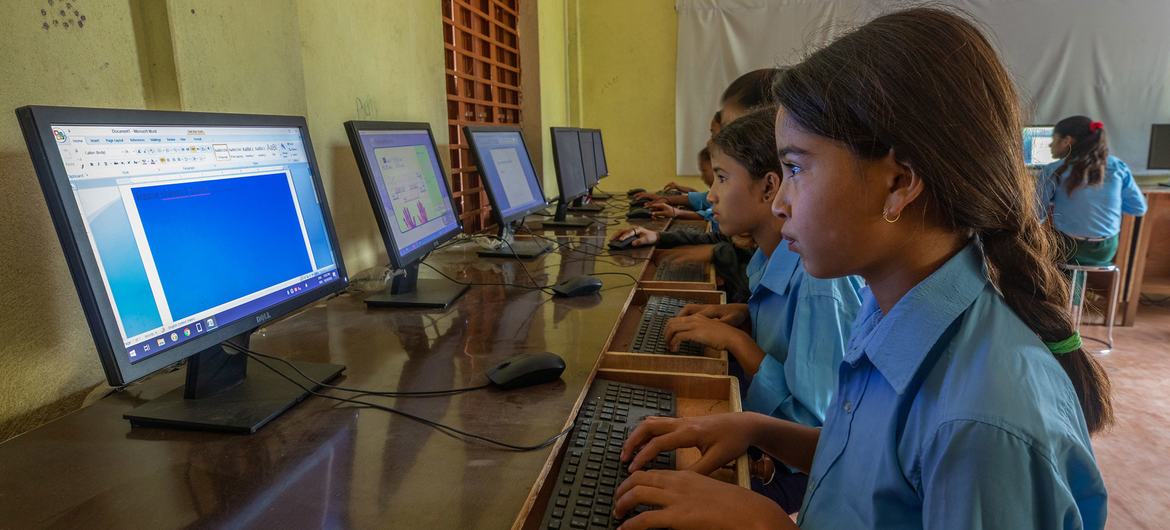
Digital technologies and algorithm-driven software - especially social media - present high risks of privacy invasion, cyberbullying and distraction from learning to young girls, according to the UN Educational, Scientific and Cultural Organization’s (UNESCO) latest Global Education Monitor (GEM) report released on April 25.
In an interview with UN News, senior policy analyst from the GEM report team Anna D’Addio said the issue of technology in education was examined through a gender lens. She said the report highlights progress in the reversal of discrimination against girls over the past two decades, but also exposes the negative impact of technology on girls' education opportunities and outcomes.
Harassment online, mental health, body disorders
“Girls on social media are much more exposed to different forms of harassment. Cyberbullying is much more frequent among girls than among boys,” Ms. D’Addio said. “It's something that affects their wellbeing, and their wellbeing is important for learning,” she added.
Based on the GEM report’s findings, social media also exposes young girls to a range of unsuitable video material, including sexual content, and the promotion of unhealthy and unrealistic body standards that negatively affect mental health and wellbeing.
It was reported that adolescent girls are twice as likely to feel lonely than boys and suffer from an eating disorder. “There is increasing evidence that shows that increased exposure to social media is related to mental health problems, eating disorders and many other issues that condition and distract social media users, and particularly girls, from education which affects their academic achievement,” Ms. D’Addio said.
The senior policy analyst said social media usage can have positive effects on young girls, especially when used to increase knowledge and raise awareness on social issues. “I think what is important is…to teach how to use social media and technology,” Ms. D’Addio said.
Girls in STEM
The senior policy analyst said the report calls attention to the fact that girls are at a disadvantage in accessing science, technology, engineering and mathematical (STEM) careers, which shows a lack of diversity in the production and development of cutting-edge tech.
Yet, the extent to which girls are encouraged and empowered to build on their mathematics skills in the early years to take them through to science, technology, engineering and mathematics (STEM) studies and ultimately careers is suggested as the key to ensuring that technological design will work for everyone in the future.
The report posits that education has a critical role to play in determining whether the future direction that the digital transformation may take us in will be gender-balanced or not.
How does it get better?
The report’s results reveal the need for a greater investment in education and smarter regulation of digital platforms.
Ms. D’Addio said UNESCO is constantly working on remedying the exclusion of girls' access and attainment to education that remains by advocating for policies that make the education system more inclusive and “promoting laws and regulations that guarantee equal access to education for girls and protect them from discrimination”.
For more information, please look at the full report.
Source: UNESCO and UN News
 Welcome to the United Nations
Welcome to the United Nations